Want a break from the hustle and bustle of everyday life? Take a journey into the heart of Thailand, where the serenity of a Buddhist monastery awaits you. Step into a world where time slows down and find yourself immersed in tranquility. In this hidden oasis, you can experience the fascinating life of a monk, learn ancient practices, and discover a deeper sense of spirituality. Breath-taking landscapes, delicious Thai cuisine, and stunning temples await you at every corner. Get ready to embark on an unforgettable adventure into the captivating world of a Thai Buddhist monastery.
Life in a Thai Buddhist Monastery
Introduction to Buddhist Monasteries in Thailand
Buddhist monasteries hold a significant place in the cultural fabric of Thailand. Nestled amidst the serene landscapes, these spiritual abodes offer an escape from the bustling cities and provide seekers with a profound experience of inner peace and tranquility. The tranquil ambiance of Thai Buddhist monasteries provides a sanctuary where individuals can immerse themselves in the teachings of Buddhism and embark on a journey of self-discovery. This article will delve into various aspects of life in a Thai Buddhist monastery, ranging from the daily routines and meditation practices to monastic rules and disciplines, all of which contribute to the unique experience found within the monastery walls.
Overview of Thai Buddhism
Thai Buddhism, also known as Theravada Buddhism, is deeply interwoven into the culture and everyday life of Thai people. With the majority of the population adhering to this ancient religion, the teachings of Buddhism touch every aspect of Thai society. Rooted in the principles of mindfulness, compassion, and the pursuit of enlightenment, Thai Buddhism places emphasis on personal responsibility and the development of moral values. The monastic community, with its monks and nuns, plays a vital role in preserving and disseminating the teachings of the Buddha, and it is within the confines of a Buddhist monastery that one can truly immerse oneself in the essence of this profound faith.
The Role of Monasteries in Thai Society
Thai monasteries are not merely places of spiritual practice, but they also fulfill various social roles within the local communities. These monastic institutions serve as centers for education, healthcare, and community development, and provide much-needed support to the surrounding areas. Monks and nuns actively engage in charitable activities, such as offering education to underprivileged children, providing healthcare services to those in need, and contributing to environmental conservation projects. The monasteries act as pillars of support for Thai society and foster a strong sense of community and well-being.
Benefits of Living in a Monastery
Living in a Thai Buddhist monastery offers a multitude of benefits that extend beyond religious and spiritual pursuits. One of the primary advantages is the opportunity for personal growth and self-discovery. The monastic environment encourages individuals to cultivate mindfulness, discipline, and self-restraint, fostering a sense of inner peace and tranquility. By dedicating oneself to a simple and structured way of life, participants can develop their mental and emotional faculties, leading to enhanced clarity, focus, and equanimity. Additionally, living in a monastery provides access to experienced teachers and mentors who can guide and support individuals on their spiritual journeys.
Daily Routine
Morning Meditation
The day in a Thai Buddhist monastery typically begins in the pre-dawn hours with morning meditation. The peaceful ambiance of the meditation hall is complemented by the soothing sounds of chanting and the fragrance of incense. During the meditation session, participants are guided to practice mindfulness by focusing on their breath and observing their thoughts and sensations without judgment. This practice helps quiet the mind, cultivate self-awareness, and lay the foundation for a harmonious day ahead.
Alms Round
Following the morning meditation, monks venture out on an alms round, a centuries-old tradition where they walk silently through the nearby villages collecting food offerings from the local community. This practice not only allows monks to sustain themselves by receiving alms but also offers the community an opportunity to generate merit and express their gratitude. The alms round is a beautiful and humbling experience, both for the monks and those who participate in the act of giving.
Chores and Duties
Upon returning to the monastery, participants engage in various chores and duties that help maintain the monastery’s cleanliness and functionality. These tasks include cleaning the living quarters, tending to the gardens, and preparing meals. Engaging in these practical activities with mindfulness and gratitude fosters a sense of interconnectedness and encourages participants to find joy in serving others.
Temple Services
Temples services in Thai monasteries take place throughout the day, providing individuals with the opportunity to deepen their spiritual practice. These services may include chanting, meditation, and Dharma talks delivered by experienced monks. By actively participating in these services, individuals can deepen their understanding of Buddhist teachings and gain insights into the nature of reality and human existence.
Evening Meditation
As the day draws to a close, the monastery once again becomes a haven for meditation. The evening meditation allows individuals to reflect upon their experiences and observations from the day, cultivating a sense of gratitude and contentment. It serves as a peaceful transition into the tranquility of the night, preparing individuals for a restful sleep and a rejuvenating start to the new day.
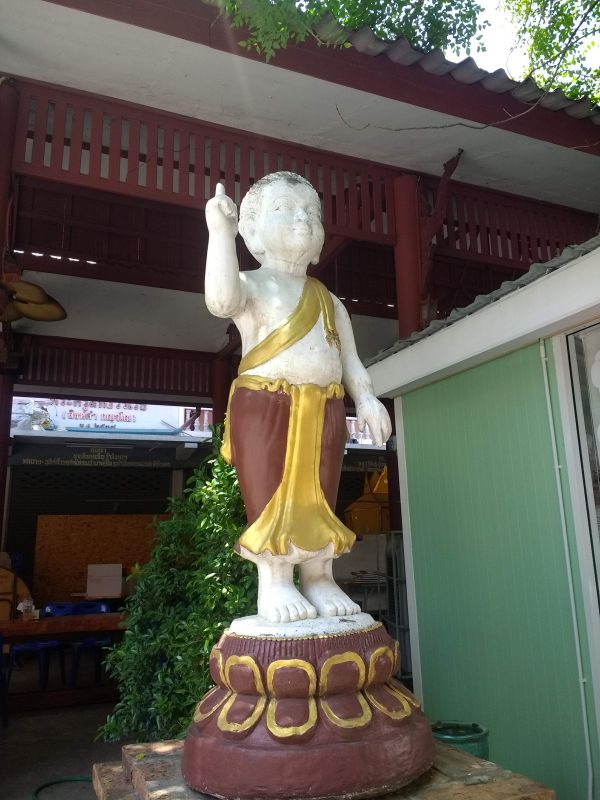
Meditation Practices
Introduction to Buddhist Meditation
At the core of Buddhism lies the practice of meditation, which seeks to develop mindfulness, concentration, and insight. Buddhist meditation serves as a means to quiet the internal chatter of the mind, allowing individuals to gain a deeper understanding of themselves and the nature of reality. Through consistent practice, meditation cultivates a state of tranquility, clarity, and compassionate awareness.
Types of Meditation Techniques
Thai Buddhist monasteries offer a variety of meditation techniques to cater to different practitioners’ needs and preferences. These techniques may include mindfulness meditation, loving-kindness meditation, and analytical meditation, among others. The purpose of these techniques is to train the mind to be present, compassionate, and discerning, enabling individuals to break free from the cycle of suffering and attain liberation.
Sitting Meditation
Sitting meditation, often practiced cross-legged on a cushion or chair, is a fundamental meditation technique in Thai Buddhism. During this practice, individuals focus their attention on their breath or a chosen meditation object, allowing thoughts and sensations to arise and pass without attachment or aversion. Sitting meditation cultivates stability, clarity, and equanimity, nurturing a deep sense of inner calm and insight.
Walking Meditation
Walking meditation is another integral practice in Thai Buddhist monasteries. Practitioners engage in slow, deliberate walking while being fully present and aware of each step and movement. By bringing attention to the physical sensations of walking, individuals cultivate mindfulness in motion and learn to integrate meditation into everyday actions. Walking meditation provides a sense of grounding and can be a refreshing alternative to sitting meditation.
Benefits of Regular Meditation
Regular meditation practice offers numerous benefits that extend beyond the confines of the monastery walls. Scientific studies have shown that meditation has a positive impact on physical, mental, and emotional well-being. It reduces stress, lowers blood pressure, enhances focus and attention, improves emotional regulation, and promotes overall psychological resilience. By integrating meditation into daily life, individuals can bring about a profound transformation in their well-being and experience a greater sense of peace and happiness.
Monastic Rules and Discipline
Vinaya: The Monastic Code
The monastic code, known as Vinaya, forms the foundation of monastic rules and ethical conduct in Thai Buddhist monasteries. Vinaya sets guidelines for the behavior and interactions of monks and nuns, promoting discipline, morality, and harmony within the monastic community. It covers a wide range of aspects, including rules related to personal conduct, clothing, food, possessions, and relationships. By adhering to the Vinaya, monks and nuns create a conducive environment for spiritual practice and maintain the integrity of the monastic tradition.
Monastic Precepts
Monks and nuns in Thai Buddhist monasteries observe a set of precepts that guide their moral conduct. These precepts vary in number and severity, with the basic code consisting of five precepts. These five precepts entail refraining from killing, stealing, engaging in sexual misconduct, lying, and consuming intoxicants. Observance of these precepts ensures that monastics lead a virtuous and righteous life, embodying the essence of Buddhist teachings and setting an example for others.
The Role of Monastic Discipline
Monastic discipline plays a crucial role in maintaining order, fostering harmony, and preserving the purity of the monastic community. By following the prescribed rules and guidelines, monks and nuns create a conducive environment for spiritual growth and inward reflection. The practice of discipline also serves as a means of cultivating self-restraint, humility, and mindfulness, ensuring that the monastic community functions as a cohesive unit and continues to uphold the teachings of the Buddha.
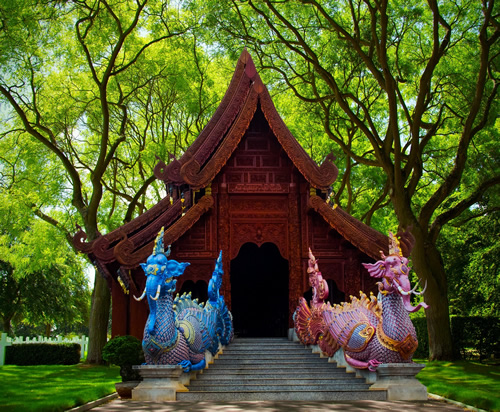
Monk Training and Education
Becoming a Monk
Becoming a monk in Thailand is a revered and cherished tradition. Young men often embark on this sacred path as a means of honoring their families and gaining merit for themselves and their loved ones. Upon expressing their desire to become a monk, individuals undergo an ordination ceremony where they take vows and are initiated into the monastic community. The decision to become a monk signifies a commitment to a life of simplicity, selflessness, and spiritual practice.
Novice Training
Novice training serves as an introductory phase for individuals who join a Thai Buddhist monastery. Novices, or samaneras, undergo a period of training and education, which includes learning basic monastic etiquette, memorizing Buddhist scriptures, and participating in daily monastic rituals. This phase provides novices with an opportunity to familiarize themselves with the monastic lifestyle, cultivate discipline, and prepare for a deeper engagement with the monastic community.
Advanced Studies
For those who wish to pursue a more profound understanding of Buddhist philosophy and teachings, advanced studies are available within the monastery. Monks can engage in rigorous academic study, exploring the various texts and commentaries that delve into the depths of Buddhist philosophy and psychology. These studies enable individuals to broaden their intellectual horizons, deepen their spiritual insights, and develop the wisdom necessary to guide others on their spiritual paths.
Monk’s Duties to the Community
As members of the monastic community, monks have a crucial role in serving the needs of the broader society. They act as spiritual guides and teachers, offering counsel and support to laypeople who seek guidance in their personal and spiritual lives. Monks also conduct religious ceremonies, including weddings, funerals, and blessings, and participate in community outreach programs that provide education, healthcare, and other social services to those in need. The monks’ dedication to serving the community reflects the spirit of compassion and kindness at the heart of Buddhist teachings
Monastery Architecture
Main Hall and Worship Areas
The main hall, or ubosot, is the centerpiece of a Thai Buddhist monastery. This sacred space serves as both a gathering place for religious ceremonies and a meditation hall for personal practice. The main hall is adorned with intricate artwork, reflecting the rich cultural heritage of Thailand and the intricate interplay between art and spirituality. Inside the hall, an image of the Buddha is enshrined, serving as a focal point for devotion, gratitude, and reverence.
Living Quarters
Within a Thai Buddhist monastery, there are designated living quarters for monks and nuns. These quarters typically consist of individual rooms or communal spaces, providing the necessary solitude for personal practice and reflection. The living quarters are designed to be simple and austere, devoid of material distractions, to foster an environment conducive to spiritual growth and contemplation.
Library and Study Areas
To facilitate the pursuit of knowledge and learning, Thai monasteries often house libraries and study areas. These repositories of wisdom contain a vast collection of Buddhist scriptures, commentaries, and texts related to various fields of study. Monks and nuns have access to these resources, enabling them to deepen their understanding of Buddhist philosophy and history.
Meditation Gardens and Retreats
Monasteries in Thailand are often nestled amidst lush greenery and serene landscapes, hosting meditation gardens and retreat centers. These outdoor spaces provide individuals with the opportunity to engage in walking meditation, surrounded by the beauty of nature. Retreat centers offer a solitary and serene environment for longer periods of introspection, away from daily distractions. The incorporation of outdoor spaces and retreat centers within the monastery grounds strengthens the connection between individuals and the transcendent nature of reality.
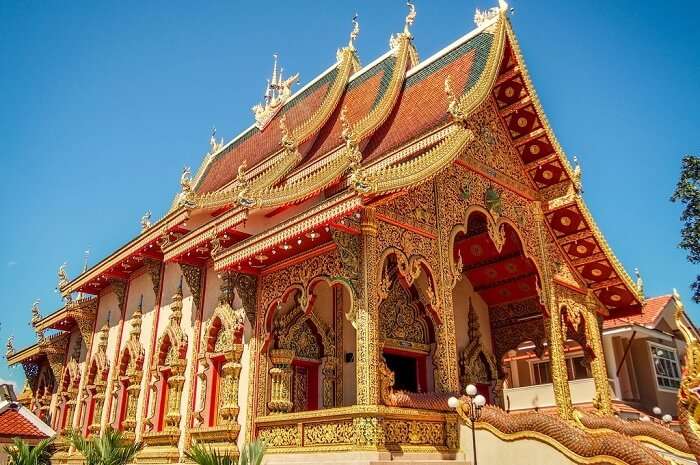
Monastery Etiquette and Customs
Respecting Monastic Hierarchy
Thai Buddhist monasteries adhere to a strict hierarchical structure, reflecting the respect and reverence accorded to seniority and experience. Proper etiquette requires individuals to approach and address senior monks and nuns with utmost respect and humility. This hierarchy fosters an atmosphere of reverence and gratitude and sustains the harmony and order within the monastic community.
Proper Dress Code
When visiting a Thai Buddhist monastery, it is essential to adhere to the dress code as a sign of respect. Both men and women are expected to dress modestly, with shoulders and knees covered, to maintain the sanctity of the spiritual environment. Loose-fitting and comfortable clothing is recommended to ensure ease of movement during meditation and other religious practices.
Visiting and Interacting with Monks
Interacting with monks in a Thai Buddhist monastery is an opportunity for learning, guidance, and spiritual nourishment. It is customary to approach monks with a respectful bow or greeting, taking care not to initiate physical contact. When engaging in conversation, it is advisable to speak softly and mindfully, allowing the conversation to be grounded in mindfulness and respect. Visitors can also seek the guidance of monks on matters of spirituality, Buddhist practice, or general life advice.
Offering Alms and Donations
Alms and donations play a significant role in sustaining the monastic community and enabling its charitable activities. Visitors to Thai monasteries have the opportunity to offer food, robes, or other necessities to the monks and nuns. This act of generosity generates merit and fosters a sense of interconnectedness and unity. It is important to approach these acts of giving with sincerity and respect, recognizing the reciprocal nature of the relationship between the monastic community and the wider society.
Engaging in Community Service
Monastic Support to Local Communities
Thai Buddhist monasteries are deeply ingrained in the fabric of local communities, offering support and resources to those in need. Monks and nuns reach out to the surrounding villages and towns, actively engaging in community service projects. These initiatives may include the establishment of schools, hospitals, or orphanages to cater to the educational and healthcare needs of the community. By actively participating in community service, the monastic community embodies the principles of compassion and generosity, serving as beacons of hope and support.
Education and Healthcare Initiatives
Education and healthcare initiatives form an integral part of the social outreach programs conducted by Thai Buddhist monasteries. Monks and nuns recognize the importance of empowering individuals through education and work tirelessly to provide access to quality education for underprivileged children. Additionally, they offer healthcare services to marginalized communities, ensuring that individuals have access to medical care and promoting the well-being and welfare of the society as a whole.
Environmental Conservation Projects
Thai Buddhist monasteries are not just concerned with the spiritual and social well-being of communities but also play an active role in environmental conservation. Recognizing the interconnectedness of all beings and the fragile nature of the planet, monks and nuns initiate and support projects to protect and preserve the environment. These initiatives may include tree planting, waste management programs, or educating local communities on sustainable practices. Through their environmental conservation efforts, the monastic community encourages individuals to cultivate a deep sense of respect, reverence, and responsibility towards the natural world.
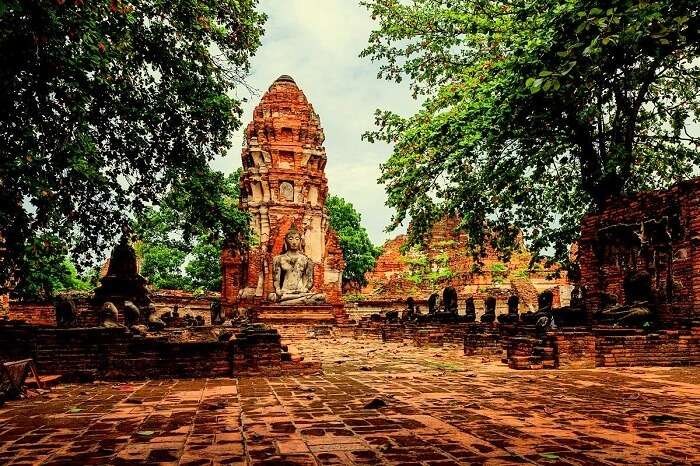
Visitor Experiences
Participating in Meditation Retreats
Thai Buddhist monasteries offer meditation retreats that provide individuals with a unique opportunity to immerse themselves fully in the practice of meditation. Retreats can range from a few days to several weeks, allowing participants to experience intensive periods of meditation, silence, and contemplation. These retreats often follow a structured schedule, with guided meditations, Dharma talks, and periods of noble silence. Participating in a meditation retreat offers individuals a space for deep introspection, self-exploration, and transformation.
Taking Buddhist Philosophy and Meditation Courses
For those interested in delving deeper into Buddhist philosophy and meditation, Thai monasteries offer courses and workshops. These programs provide a comprehensive understanding of Buddhist teachings and offer practical tools for incorporating meditation into everyday life. Participants have the opportunity to engage in discussions, receive guidance from experienced teachers, and immerse themselves in an environment conducive to spiritual growth and learning.
Volunteering Opportunities
Thai Buddhist monasteries actively welcome individuals who wish to contribute their time and skills to support the activities and initiatives of the monastic community. Volunteers can engage in various tasks, including maintenance, gardening, teaching, or assisting with community outreach programs. Volunteering in a monastery allows individuals to experience monastic life firsthand, deepen their understanding of Buddhism, and actively contribute to the welfare of society.
Cultural Immersion and Thai Traditions
Visiting a Thai Buddhist monastery offers a unique opportunity to immerse oneself in the rich cultural traditions and practices of Thailand. Participants can witness and participate in religious ceremonies, such as temple fairs or candlelit processions, and gain insights into the folklore, art, and customs of the local community. Engaging with monks and nuns allows visitors to learn about the profound wisdom of Buddhist teachings and experience the warm hospitality and inherent kindness of Thai culture.
Maintaining Mindfulness in Everyday Life
Incorporating Buddhist Teachings
The teachings of Buddhism offer practical guidance on how to live a meaningful and purposeful life. Applying Buddhist principles in everyday life involves cultivating mindfulness, compassion, and ethical conduct. By incorporating the insights gained from meditation and studying Buddhist texts, individuals can develop a heightened awareness of their thoughts, emotions, and actions, leading to a greater sense of perspective and well-being.
Practicing Mindful Actions
Mindful actions involve being fully present and engaged with each moment, whether it be eating, walking, or interacting with others. Mindfulness allows individuals to appreciate the beauty and interconnectedness of all things, fostering a sense of gratitude and contentment. By cultivating mindfulness in daily activities, individuals can transform mundane actions into opportunities for growth, self-reflection, and fostering positive relationships with others.
Finding Inner Peace and Balance
One of the ultimate goals of practicing Buddhism is to achieve inner peace and balance. By recognizing the impermanent and ever-changing nature of existence, individuals can develop equanimity and acceptance of life’s challenges. Buddhist teachings provide tools for cultivating resilience, compassion, and wisdom, enabling individuals to navigate the ups and downs of life with tranquility and grace. By finding inner peace, individuals can contribute positively to the well-being of themselves, their loved ones, and society as a whole.
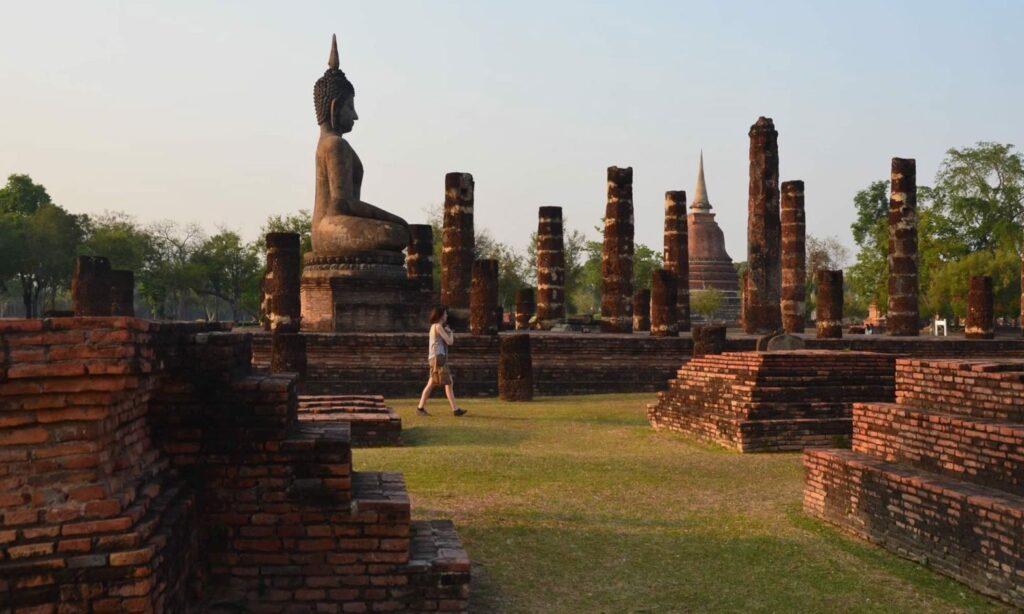
Conclusion
The Transcendent Experience
Life in a Thai Buddhist monastery offers a unique and transcendent experience. It provides individuals with an opportunity to seek solace and tranquility in the bustling modern world. The structured daily routines, meditation practices, and engagement with monastic rules and discipline create an environment that nurtures personal growth, mindfulness, and self-awareness. Through the guidance of experienced monks and nuns, visitors can embark on a journey of self-discovery, explore the depths of Buddhist teachings, and experience the transformative power of meditation.
Buddhist Monastery as a Spiritual Haven
Thai Buddhist monasteries serve as spiritual havens, fostering a deep sense of connection with oneself, others, and the world around. The monastic community’s commitment to wisdom, compassion, and service provides a guiding light for individuals navigating the complexities of life. By immersing oneself in the serene ambiance of a monastery, one can find respite from the demands of everyday life and tap into a wellspring of peace and tranquility.
Impact of Monastic Life on Individuals
The impact of monastic life extends far beyond the confines of the monastery. Individuals who have experienced life in a Thai Buddhist monastery often carry the lessons and wisdom gained into their everyday lives. The cultivation of mindfulness, compassion, and ethical conduct becomes an integral part of their being, allowing them to navigate through life’s challenges with grace and equanimity. The practices and teachings learned within the monastery continue to influence individuals long after they have left, shaping their perspectives, relationships, and overall well-being.
In conclusion, life in a Thai Buddhist monastery offers a transformative experience for individuals seeking solace, inner peace, and spiritual growth. The daily routines, meditation practices, ethical guidelines, and engagement with the monastic community create an environment that fosters self-reflection, mindfulness, and the cultivation of positive qualities. By immersing oneself in the teachings and practices of Buddhism, individuals can embark on a journey of self-discovery, attaining a sense of tranquility and wisdom that extends far beyond the monastery walls.
